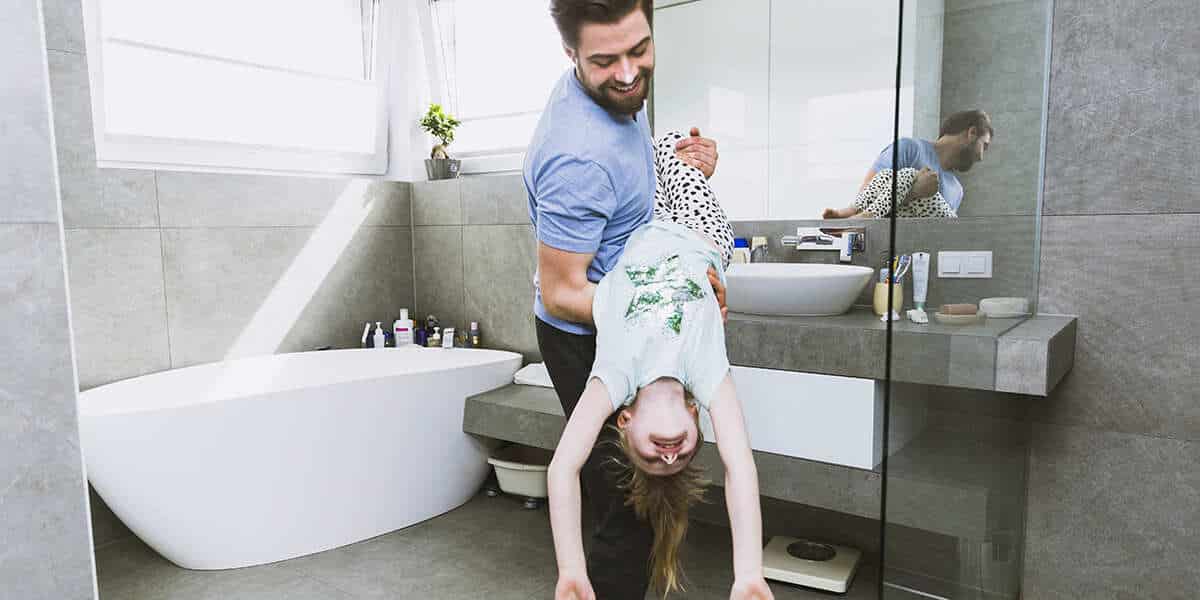The Difference Between One-Piece and Two-Piece Toilets
Are you considering bathroom remodeling in Glendale? Are you standing in the bathroom aisle, confused about which toilet to choose? The decision between a one-piece versus a two-piece toilet may factor into your renovation, though this can feel overwhelming when you’re not familiar with the differences.
In this guide, Payless Bath Makeover will explain the key differences between these two popular toilet installation types.
Understanding the Basic Difference Between One-Piece and Two-Piece Toilets
The fundamental difference between these toilet installation types is their construction. A one-piece toilet features a seamlessly fused tank and bowl manufactured as a single unit.
Two-piece toilets, on the other hand, are bolted together by plumbers during installation. The separate tank and bowl components assemble to create the two-piece toilet.
The difference in construction affects several important factors, including price, installation, maintenance, and aesthetics.
Comparing Appearance and Design
One-piece toilets offer a sleek, modern aesthetic with clean lines and no visible seams. Their streamlined silhouette tends to complement contemporary bathroom designs and can make smaller bathrooms feel more spacious.
Two-piece toilets provide a more traditional look that works well with conventional bathroom designs. They come in a wider variety of styles, shapes, and decorative options, making them adaptable to various design preferences. Looking at a basic toilet style comparison can help you make a better decision.
You also need to consider toilet heights. Both toilet types are available in standard heights (15 to 16 inches from floor to seat) and comfort heights (17 to 19 inches), the latter being more accessible for taller adults or those with mobility challenges.
Evaluating the Costs
One of the pros of two-piece toilets is their cost. They generally cost less, with prices typically ranging from $250 to $700, including installation. One-piece toilets command a higher price point, usually between $500 and $1,100.
While the initial investment is higher for one-piece toilets, many homeowners find the premium worthwhile considering the potential long-term benefits in durability and maintenance ease. However, for multi-bathroom homes or projects with tight budgets, the affordability of separate-piece toilets makes them an attractive option.
It’s worth noting that the price gap has narrowed in recent years. Premium features like soft-close lids, powerful flushing systems, and water-saving technology can affect the final price regardless of which design you choose.
Exploring Installation Processes
When picking between a one-piece versus a two-piece toilet, you must consider the weight. For the former option, their weight can make them difficult to position, especially in bathrooms with limited space or complex layouts.
Two-piece toilets offer easier handling during installation because you can transport and position the tank and bowl separately. This makes them more DIY-friendly and convenient for navigating through narrow doorways or tight spaces. However, properly aligning and sealing the connections between the tank and bowl requires professional expertise and attention to detail.
Plumbers often charge similar installation fees for both types, but the labor involved differs. With a one-piece toilet, the challenge is in moving the heavier unit, while two-piece toilets require more time for precise assembly and sealing.
Analyzing Cleaning Methods
One of the most prominent benefits of one-piece systems is the seamless toilet design. Without crevices between the tank and bowl, there are fewer areas for dirt, bacteria, and grime to accumulate.
Two-piece toilets have a gap between the tank and bowl that can trap dirt and moisture, making thorough cleaning more challenging. This space requires regular attention to prevent the buildup of contaminants and potential odors. The connections between components also create more potential points for leaks.
For households with young children, elderly members, or individuals with compromised immune systems, the hygiene advantage of one-piece toilets may be valuable. The reduced cleaning time and more sanitary conditions can improve overall bathroom maintenance.
Looking Into Durability
When considering long-term value between a one and two-piece toilet, durability becomes an important factor. One-piece toilets typically offer greater durability due to their seamless construction. With fewer connecting parts, there’s less risk of leaks developing between the tank and bowl, and their solid construction can result in quieter operation with minimal vibration during flushing.
Two-piece toilets have more connection points that may eventually develop issues, but they offer an advantage when it comes to repairs. If damage occurs to either the tank or bowl, you can replace just the affected component rather than the entire unit. This modular design can save you money on repairs and reduce waste, as replacement parts for these models are widely available.
The typical lifespan of a well-maintained toilet can exceed 15 years, regardless of design. However, the repair flexibility of two-piece toilets means they might be more economical over their lifetime, despite potentially requiring more maintenance. For homeowners planning to stay in their homes long-term, this repair advantage could be significant.
Examining Water Efficiency and Performance Benefits
Whether you choose a one-piece or two-piece toilet, both offer excellent performance and water efficiency. Modern models of both types are available with water-saving features such as:
- Low-flow technology that uses less water per flush
- Dual-flush options that provide different water volumes for liquid and solid waste
- Power-flush systems that create more forceful flushes while using less water
- The WaterSense certification, which provides compliance with EPA efficiency standards
When evaluating performance, focus on these specific features and technologies. Many modern toilets use considerably less water than older models, with standard low-flow toilets using 1.6 gallons per flush compared to older toilets that used 3.5 to 7 gallons per flush. Manufacturers can equip both toilet types with water-saving features that reduce water consumption without compromising on performance for environmentally conscious homeowners.
Understanding Space Parameters
When choosing between a one and two-piece system, the compact toilet design of the former is advantageous in smaller bathrooms. The lower profile and more streamlined design takes up less visual space, helping to create a more open feel. In powder rooms or guest bathrooms with limited square footage, this space-saving characteristic can make a noticeable difference in functionality and comfort.
Two-piece toilets offer more flexibility with rough-in distances (the measurement from the wall to the center of the drain pipe). They’re typically available in 10-inch, 12-inch, and 14-inch options. This variety makes them adaptable to different bathroom layouts and existing plumbing configurations.
Making Your Decision
If you’re still unsure of the one-piece versus two-piece toilet debate, consider these key factors:
- Budget considerations: Two-piece toilet models are more economical upfront and can offer cheaper repairs.
- Bathroom dimensions: Consider the most appropriate and space-efficient toilet configuration for your space.
- Cleaning preferences: Each option comes with varying maintenance requirements. Two-piece systems come with challenging crevices that increase cleaning demands.
- Installation complexity: Consider the substantial weight differences, maneuverability constraints, and access limitations.
- Aesthetic alignments: Are you interested in a contemporary minimalist design or a more traditional style?
- Long-term ownership planning: We recommend thinking about potential component replacement scenarios, future maintenance investments, and overall lifecycle cost projections.
By weighing these factors against your specific needs and preferences, you can select the toilet type that will provide the best combination of functionality, appearance, and value.
Pick the Right Toilet With Payless Bath Makeover
Which should you choose between a one-piece versus a two-piece toilet? Both options have their place depending on your specific needs, budget, and design preferences.
At Payless Bath Makeover, we can guide you through selecting the perfect toilet that aligns with your bathroom vision. Our team specializes in creating beautiful, functional renovations that align with your goals. Whether it’s remodelling or selecting fixtures like a bidet seat, we’re here to help.
Contact Payless Bath Makeover at (888) 389-9955 to schedule a consultation today.
- One Piece vs Two Piece Toilet – What’s the Difference - April 30, 2025
- Bidet Seat vs Bidet Toilet – Choosing the Right One - April 30, 2025
- Best Materials for Your Bathroom Vanity Cabinets - March 19, 2025





